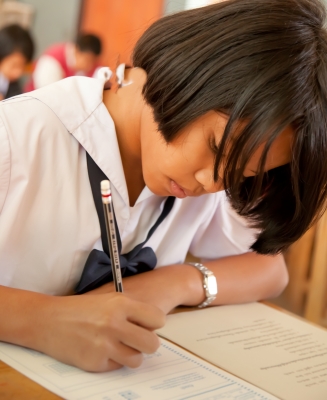Educational psychology is the scientific field concerned with applying psychological theories and concepts to the understanding and improvement of teaching and learning in formal educational settings. In simpler terms, it is concerned with the study of how students learn and how teachers can help them to learn effectively. Educational psychology draws on and combines various psychological theories and principles – such as those related to human development, motivation, learning, behavior management and assessment, among others – in order to improve the conditions of teaching and learning. Educational psychologists study the process of learning not only among the general population but also among sub-groups such as gifted children and those with various learning disabilities.
The goal of educational psychology is not to provide specific prescriptions for teachers and other individuals who have an influence on a learner’s educational attainment, as if there were only a few set ways in which one can optimize the processes of teaching and learning. Rather, research in this field is designed to uncover general principles which can be applied in various ways across diverse educational settings and learners. Research in educational psychology is designed to answer questions such as: How do people learn? What motivates them to learn? And what factors interfere with learning? [showmyads]
Educational psychologists, like their counterparts in other fields of psychology, are employed in a variety of settings. They may work in colleges and universities where they either serve as lecturers or conduct research on topics relevant to education and learning. Others serve as consultants, helping to develop classroom programmes, university courses and instructional materials for people in educational or work settings. They may also assist in developing and reviewing educational policies and standards. As this takes up a significant amount of time, some choose to use the services of professional proofreaders to double-check the quality of their works. It is no simple task to balance all of these things out as an educational psychologist but making use of all the tools available to you is the first step towards success.
Other educational psychologists are employed by primary and secondary schools, in which case they may work directly with students (individually or in groups) to help them overcome problems related to their education. These may be problems which affect learning directly, as in the case of a learning disability, or indirectly, such as emotional, social and behavioural problems. In cases where learners appear to be struggling, educational psychologists usually begin my assessing their unique learning, emotional and behavioural needs through the use of observation, test materials and other assessment methods. They may then consult and collaborate with teachers, parents and other relevant individuals to develop and implement effective approaches and provisions to support learning. They also assess the progress of learners over time to determine the effectiveness of intervention.
Image courtesy of FreeDigitalPhotos.net
Related articles
- Why Schools Should Be Careful Teaching ‘Character’ (psychologytoday.com)
- Educational Psychology: 20 Things Educators Need to Know About How Students Learn (classroom-aid.com)
- Is It ADHD or a Different Learning Style? Educational Psychologist Comments on Recent ADHD Guideline Changes (prweb.com)
- Educational Psychologist Demonstrates the Conflict Between Learning and Teaching Styles (prweb.com)



